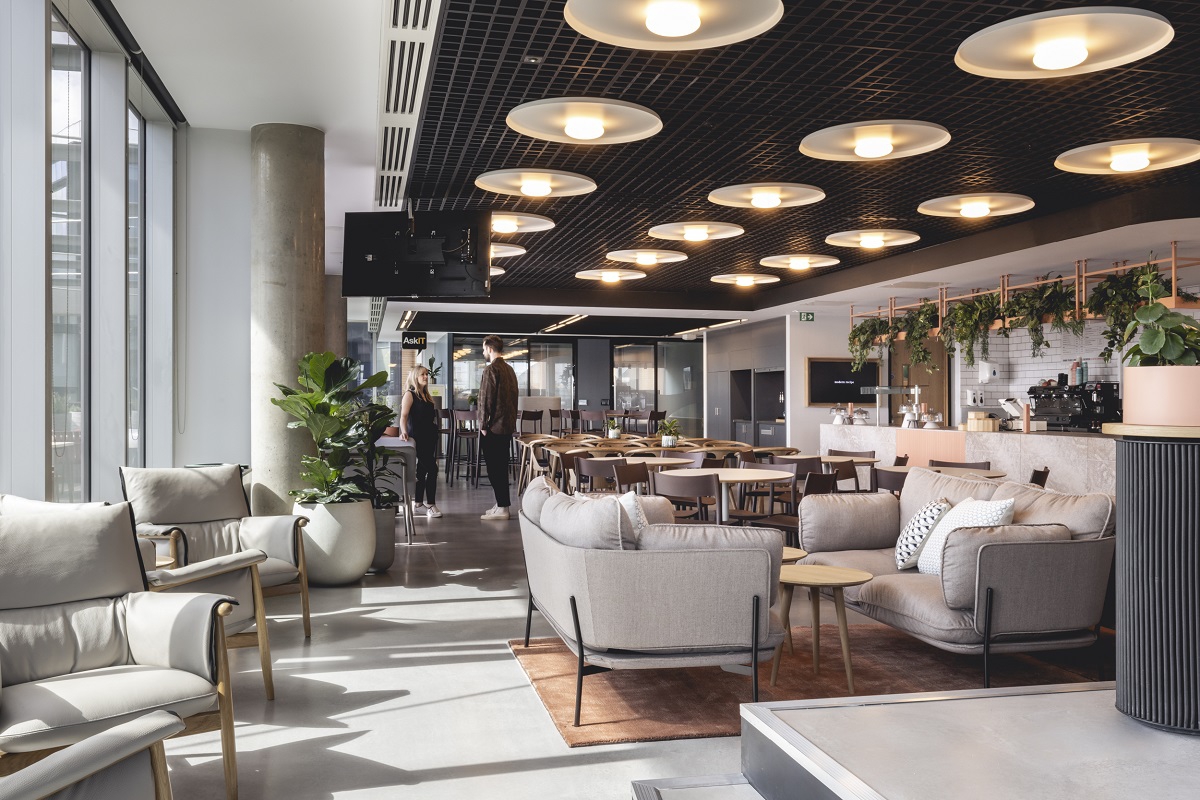
Shaping Hospitality Experiences: Exploring the Latest Design Trends
As the travel, tourism, and hospitality sector continues to make a resounding comeback, the power of design takes centre stage, transforming the way we perceive hotels, restaurants, and the broader hospitality landscape.
At the heart of hospitality lies the requirement to create unique experiences, and design is the instrumental force guiding businesses toward this goal. From the moment you step into a hotel lobby or restaurant, design works to create a rich and immersive experience. Modern hotels, restaurants, and the entire hospitality industry have responded to shifting societal dynamics with innovative solutions. They have reimagined room configurations and are providing highly personalized experiences, injecting excitement and innovation into their establishments, all in the pursuit of offering truly unique guest experiences.
In this blog, we'll look into the latest design trends in the industry, reflecting the ever-evolving nature of hospitality and the vital role design plays in shaping our encounters with it.
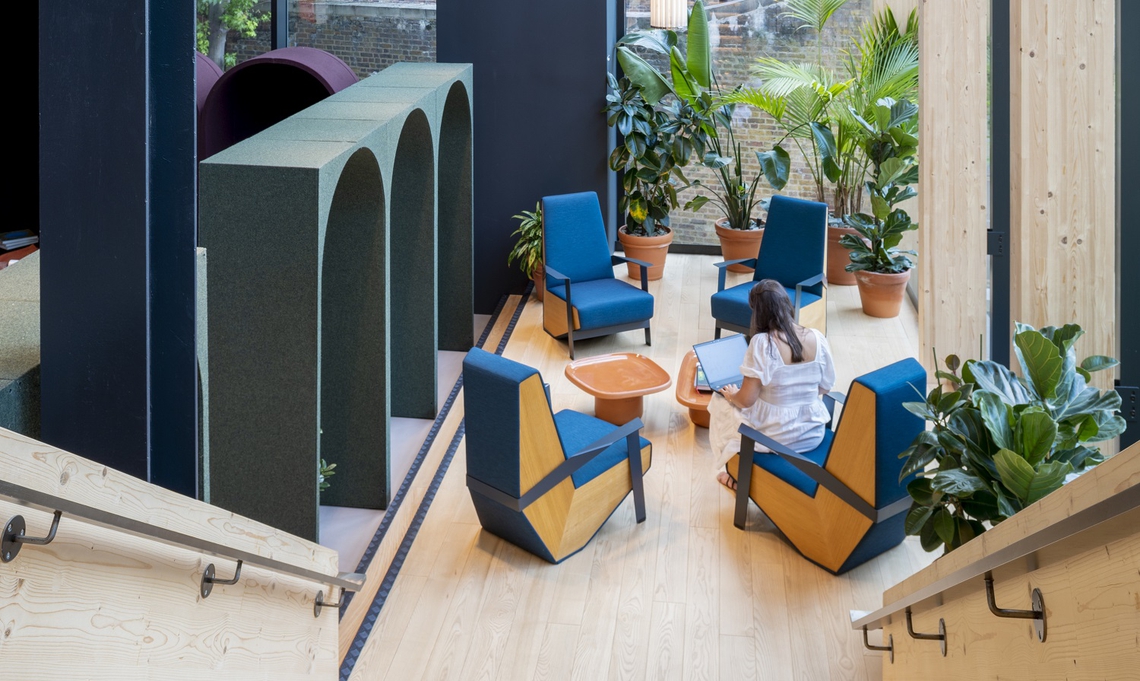
Tech-Enabled Hospitality
In hospitality, technology transcends its role in operational efficiency to redefine the very core of guest experiences. At the heart of this transformation lies the concept of "connected experiences," seamlessly merging the digital and physical to craft a unified and all-encompassing guest journey. The shifting lifestyles of guests, with the increasing prevalence of remote work, have led to the creation of hotel spaces designed to enhance productivity. While most hotels have long offered desk spaces in rooms, many are now expanding tech-enabled features such as improved co-working areas and wireless charging stations.
Within this tech-driven evolution, Artificial Intelligence (AI) emerges as a central player, beyond its primary benefits in streamlining operational efficiency. AI empowers an unparalleled level of personalisation, enabling features such as automatic room temperature adjustments upon entry and anticipatory concierge services. AI-driven designs draw insights from guest data to tailor spaces, optimise lighting, and even artwork. This trend is set to take centre stage in the months and years ahead as we further unlock the potential of AI to enhance personalisation in hospitality design.
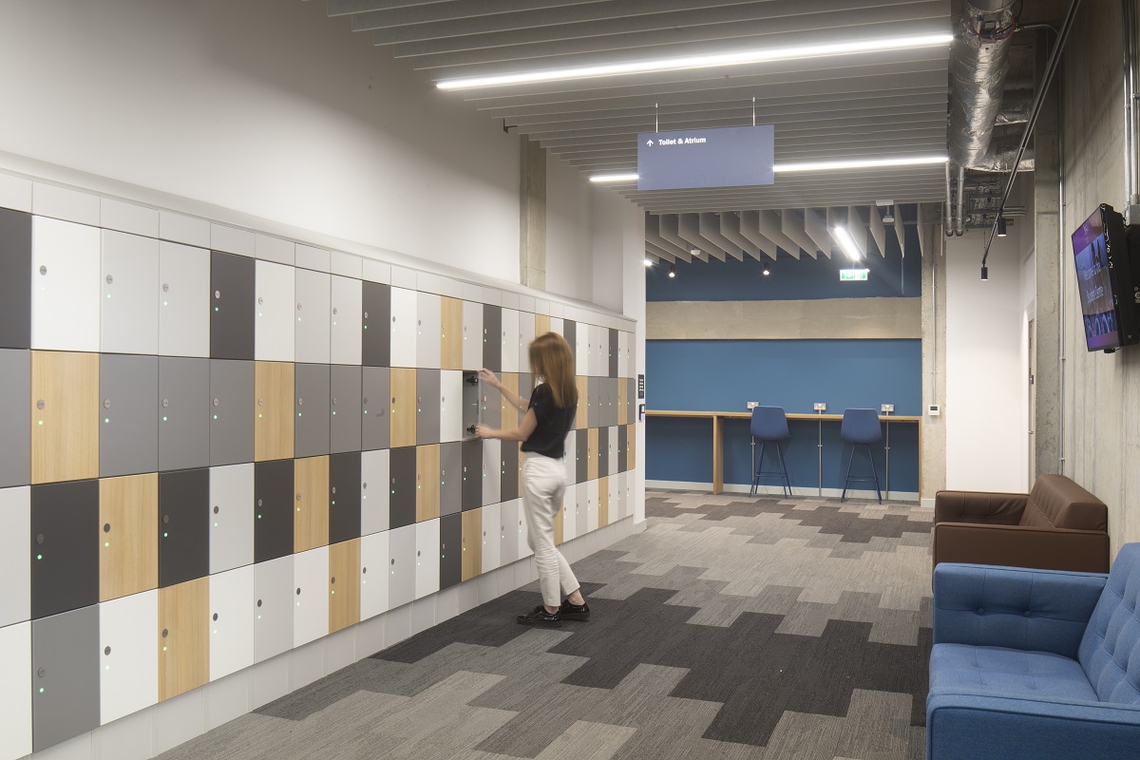
Multi-use Spaces
Today, we are observing a deliberate shift across all industries towards spaces such as meeting rooms being repurposed for diverse uses, ranging from specialised training sessions to versatile food and drink offerings and even community gatherings. This trend is poised to continue, with a growing emphasis on spaces that can fluidly adapt to a multitude of needs.
Within hotels, the significance of entrance lobbies has seen a notable resurgence, becoming pivotal hubs for social interactions. The traditional arrangement of sofas and coffee tables is out, as with the changing landscape of business travel, hotel lobbies are now designed to cater to both casual and formal meetings, while also accommodating remote work. It's common to encounter remarkable entrance features such as vibrant green walls, indoor waterfalls, chandeliers, and cutting-edge multimedia stations. Innovative space planning is essential, creating zones that offer both intimacy and sociability, complemented by furniture that seamlessly fuses comfort with functionality.
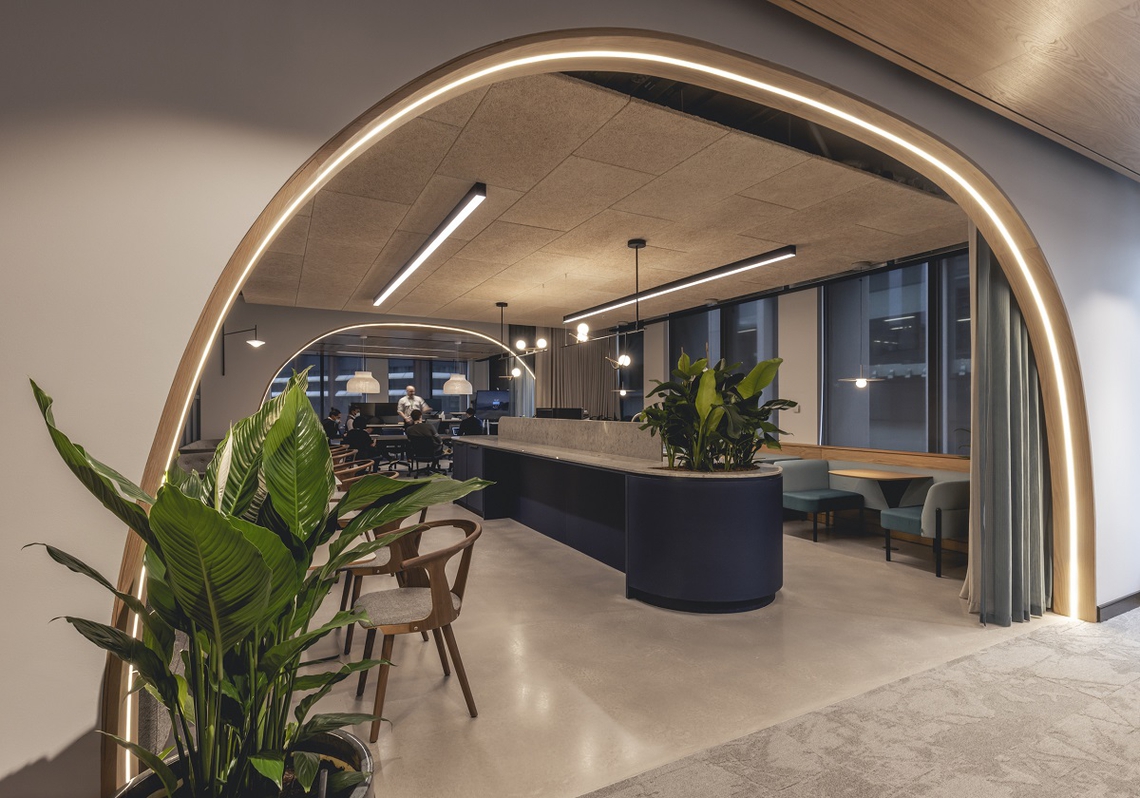
This extends to restaurants as well, with the emergence of more multi-purpose spaces, or multi-function establishments altogether. More multi-function restaurants pop up every day with unique entertainment amenities such as board or video game bars, while coffee shops continue to provide areas that facilitate one-to-one meetings or remote working.
In contemporary hospitality design, photo props, walls and backdrops are increasingly strategically incorporated to encourage organic social sharing and Instagram-worthy moments, pushing the boundaries of creativity and transforming each venue into a destination in its own right.
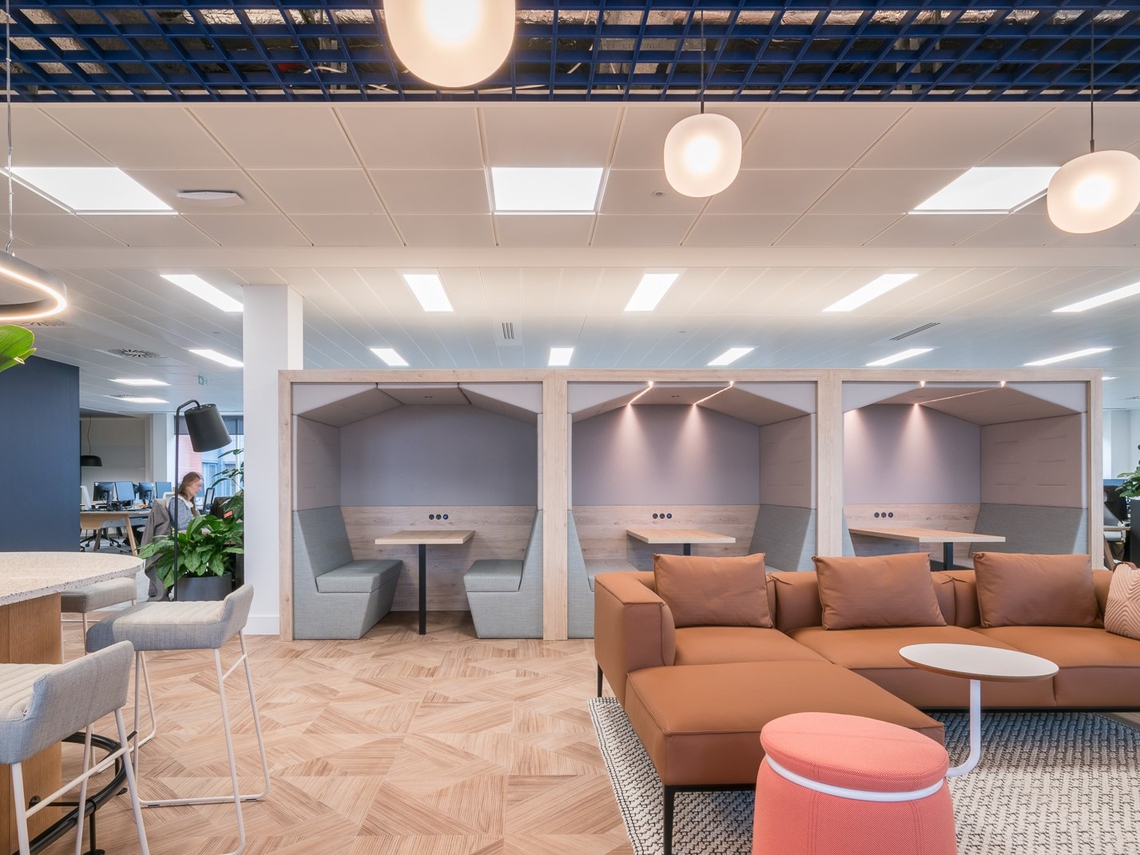
Local Immersion
For hospitality venues that are less geographically themed, there's a growing realisation that incorporating local art into their designs can enhance the guest experience and create a genuine connection to the place. In a world where the idea of raw authenticity is becoming more important, representing local communities in hospitality venues is highly valued.
This involves integrating various forms of art, from small sculptures to large installations, to improve the overall perception of the hotel, or photos of the local community, or menus designed by local artists.
Designers, clients, and local communities have a shared responsibility to preserve local cultures and identities. As Gensler Interior Designer, Tori Thibodeaux,reports, collaboration through town hall meetings, involving local businesses and community leaders, and utilising local talent are essential steps to ensure that clients can foster community connections and economic growth by allowing guests to engage with residents, ultimately benefiting the local economy.
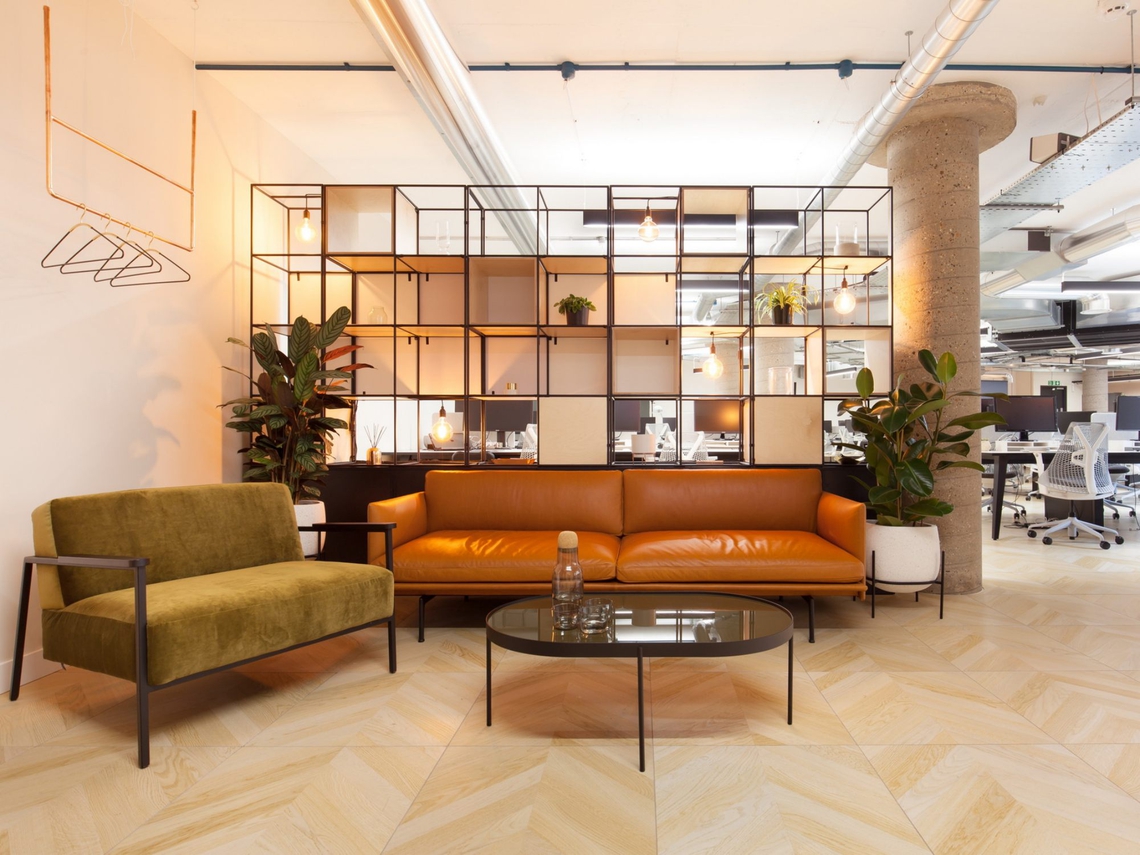
Wellness Focused Design
In the contemporary hospitality landscape, wellness-focused design has shifted from a discretionary amenity to a cultural imperative, making it one of the fastest-growing global industries. The discussion is no longer centred on the profitability of wellness; it is a known fact that it positively impacts the industry.
This trend entails the creation of spaces that prioritise guest well-being, encompassing fitness centres, spa facilities, and guest rooms designed for relaxation and comfort.
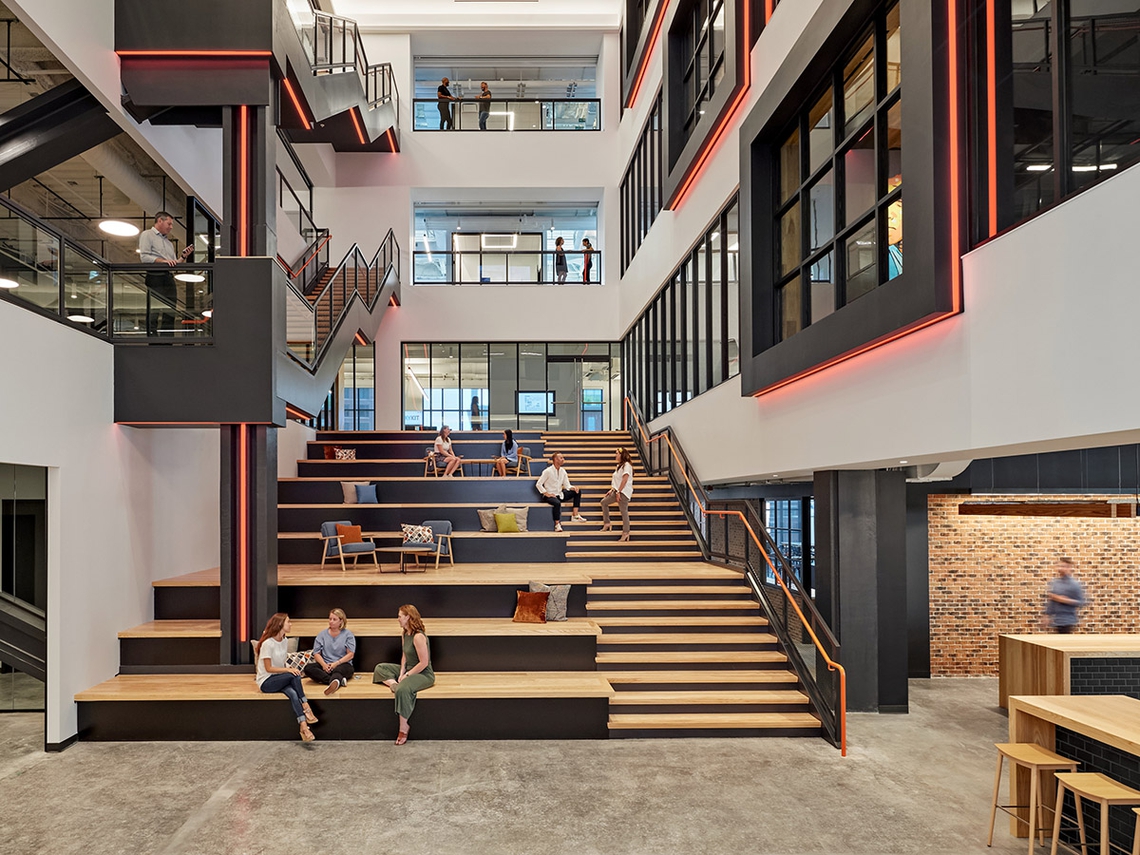
Biophilic design principles are central, as they seamlessly incorporate natural elements such as wood, plants, and ample natural light into hotel spaces. This infusion of nature fosters a tranquil and inviting atmosphere, contributing to the overall wellbeing of guests.
The incorporation of sensory experiences is a key component. Modern hotel owners are committed to creating ethereal indoor-outdoor transitions, expanding hotel rooms through spacious decks and terraces, and seamlessly integrating nature within the hotel's interior. Elements like wood panelling, stone accents, lush greenery, and indoor water features are deployed to alleviate tension and enhance the overall wellness of guests.
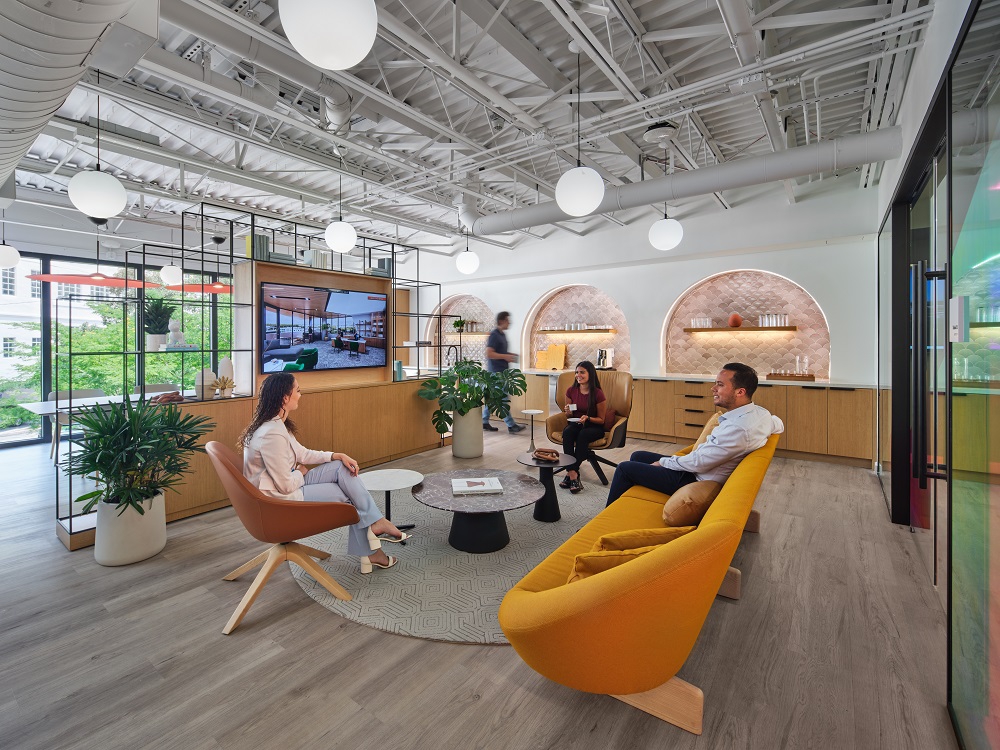
Sustainable Hospitality
The hospitality industry is making a profound shift towards sustainability, recognising the importance of minimising environmental impact while ensuring economic viability. Hotel owners are adopting innovative strategies like oversized windows for natural lighting, natural building materials, green walls, green roofs, recycling bins for guests, electronic water faucets, locally sourced food, and greywater recycling.
Sustainable design focuses on energy-efficient technologies, recycled materials, and sustainable construction practices to reduce a hotel's carbon footprint. Prioritising eco-friendly amenities over plastics is crucial for an increasingly conscientious society of consumers. Technology and AI play a role in ensuring future sustainability, optimizing energy consumption and resource usage.
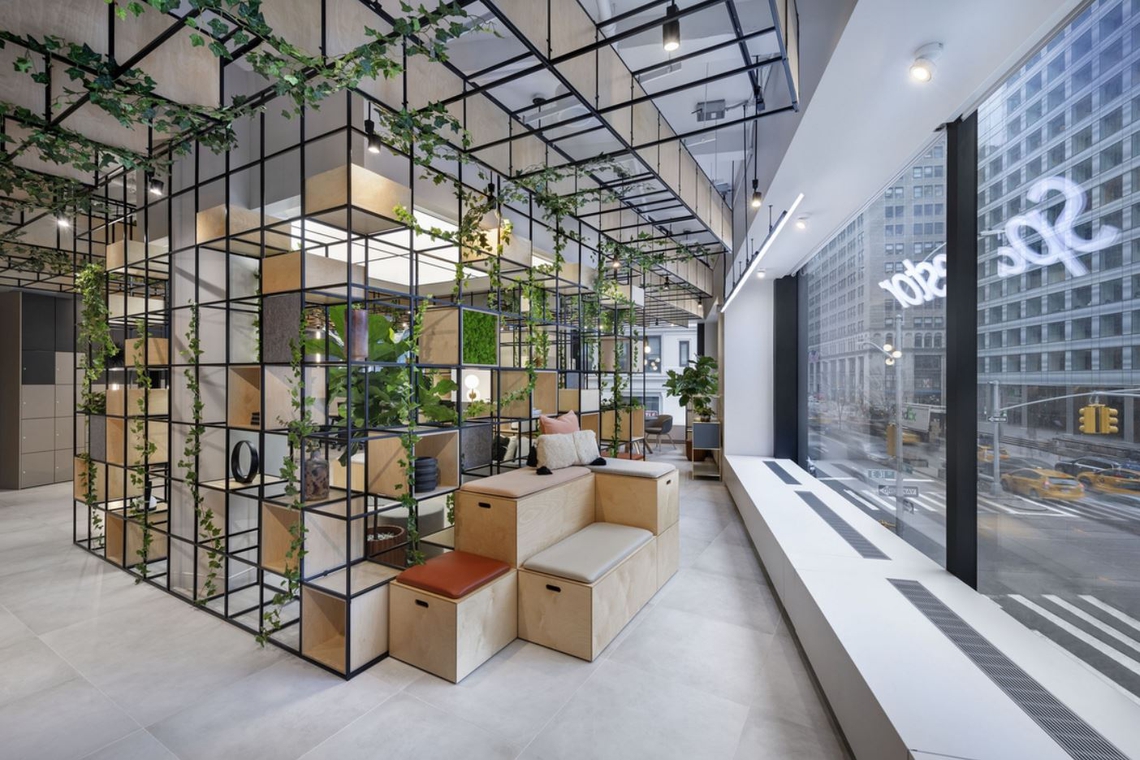
Adaptive reuse and repositioning are significant strategies, transforming underutilised structures like office spaces, department stores, or retail centres into hotels, residences, or mixed-use developments. Repurposing existing buildings maximises efficiency and minimises long-term construction impact, contributing to a more sustainable future. This trend is propelling hospitality design towards enduring environmental and economic stewardship.
As the hospitality industry continues to evolve, design remains at the forefront, shaping experiences that captivate and engage guests. The future of hospitality is experiential and we look forward to seeing how these key design trends develop in the months to come.
To talk with our team of designers about your hospitality design needs, get in touch with us today.
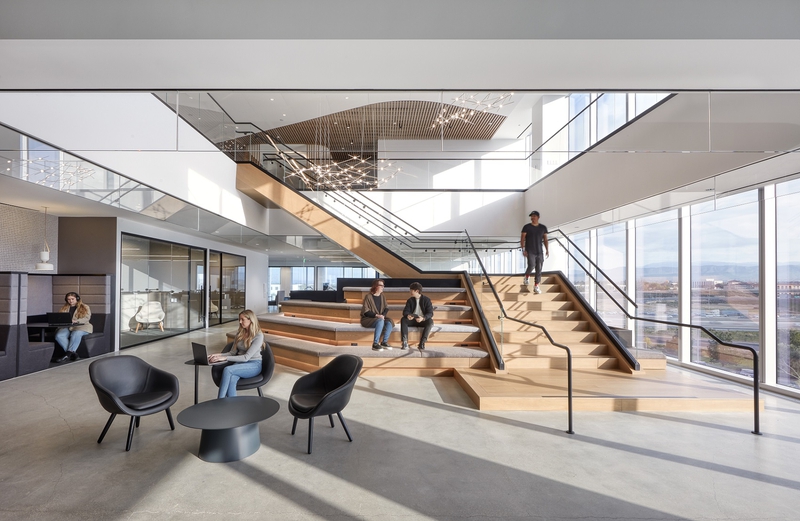
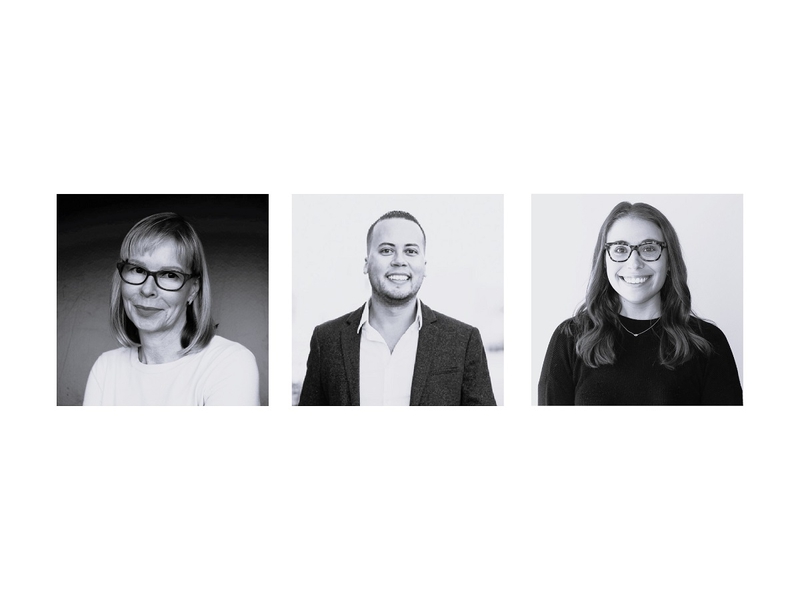
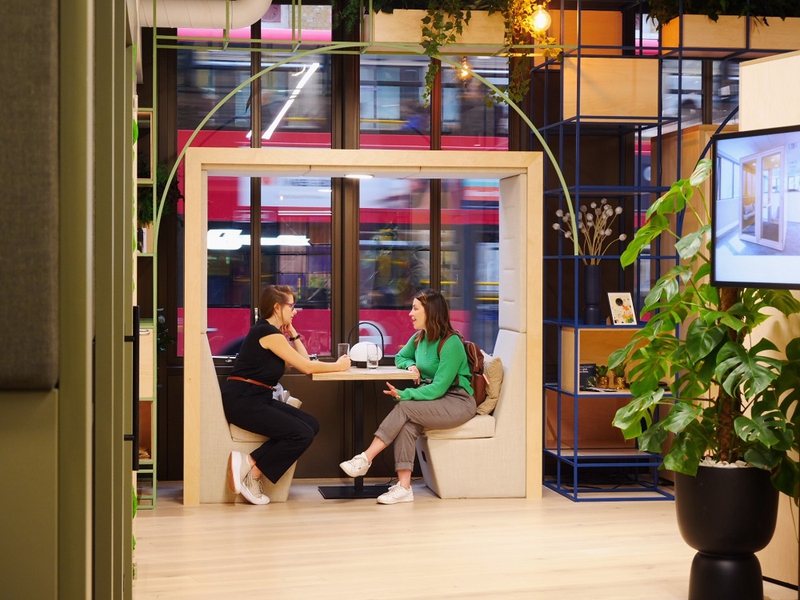
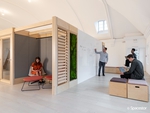

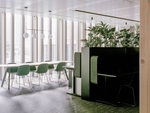
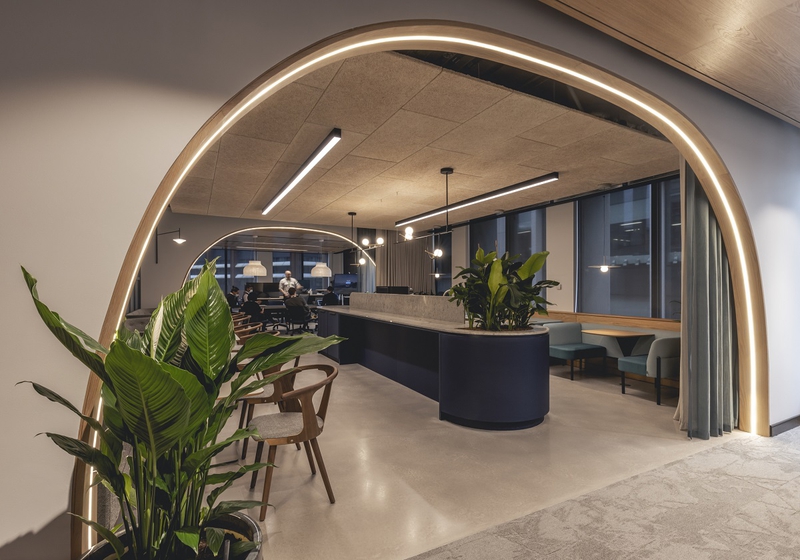
A sympathetic workplace design creation - an office which is home-away-from-home
LES SCIENCES
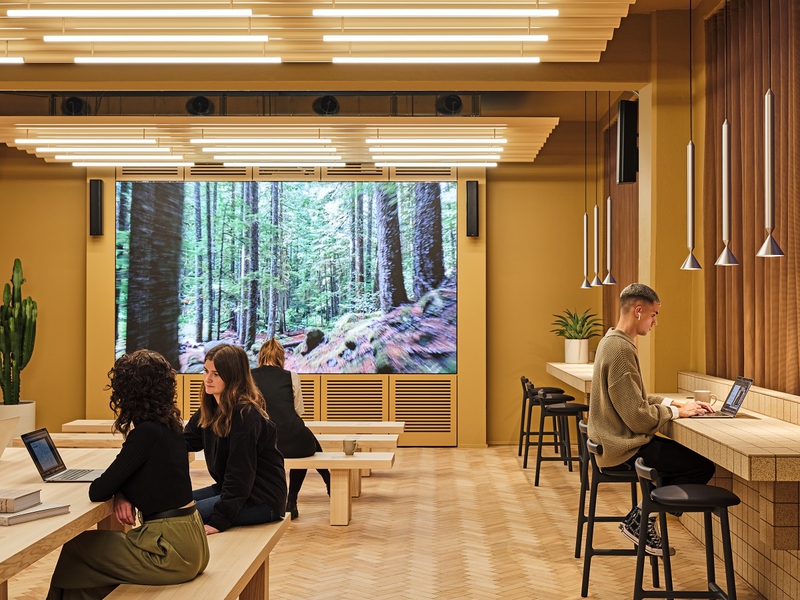
Neutral but bright, calm but dynamic - in this space paradox makes sense and works fluidly in a stunning workplace expe…
IMMOBILIER
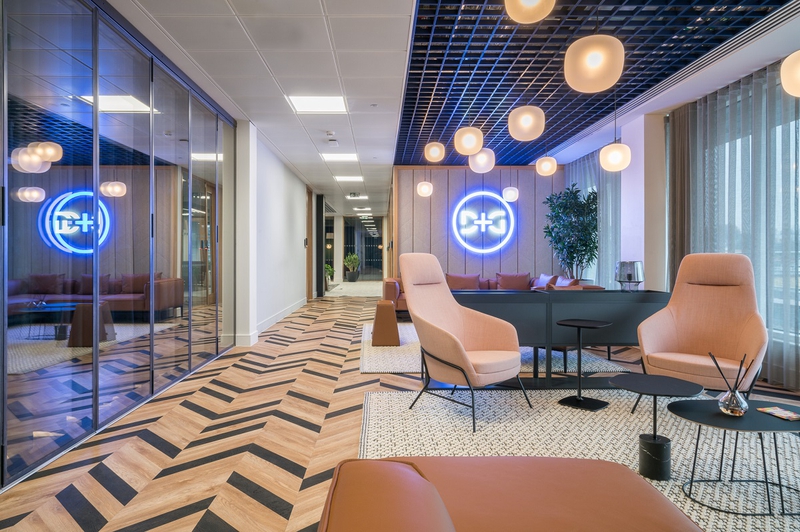
A sympathetic design, created for the hybrid world with sustainable roots and award winning results.
SERVICES PROFESSIONNELS